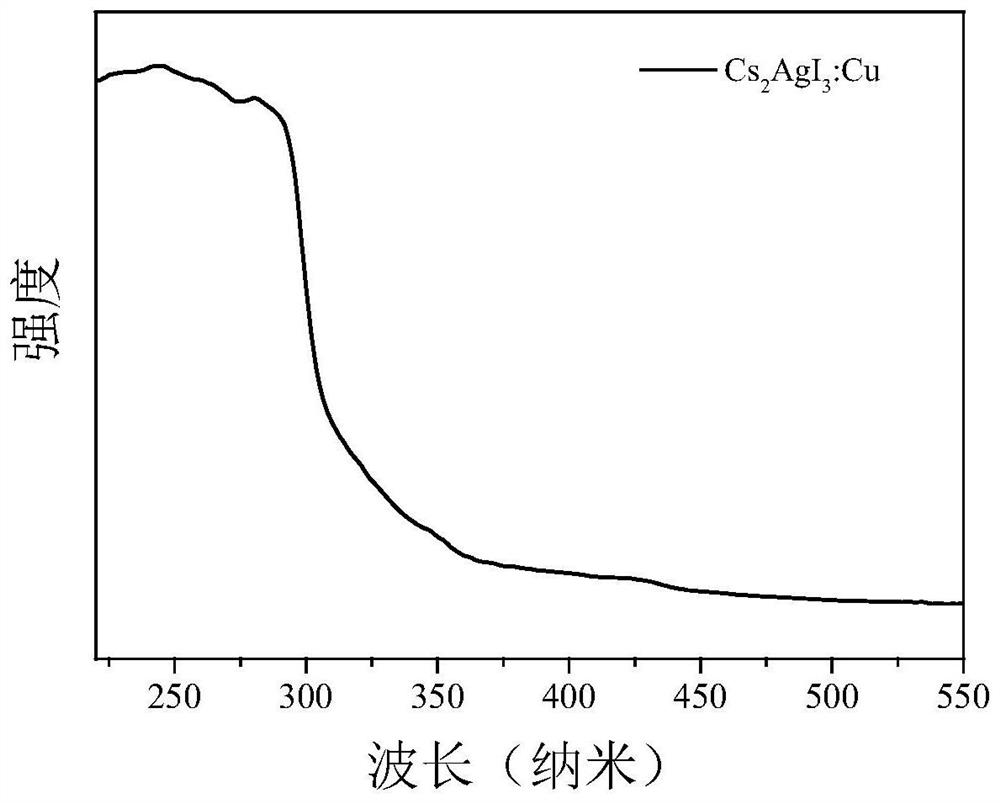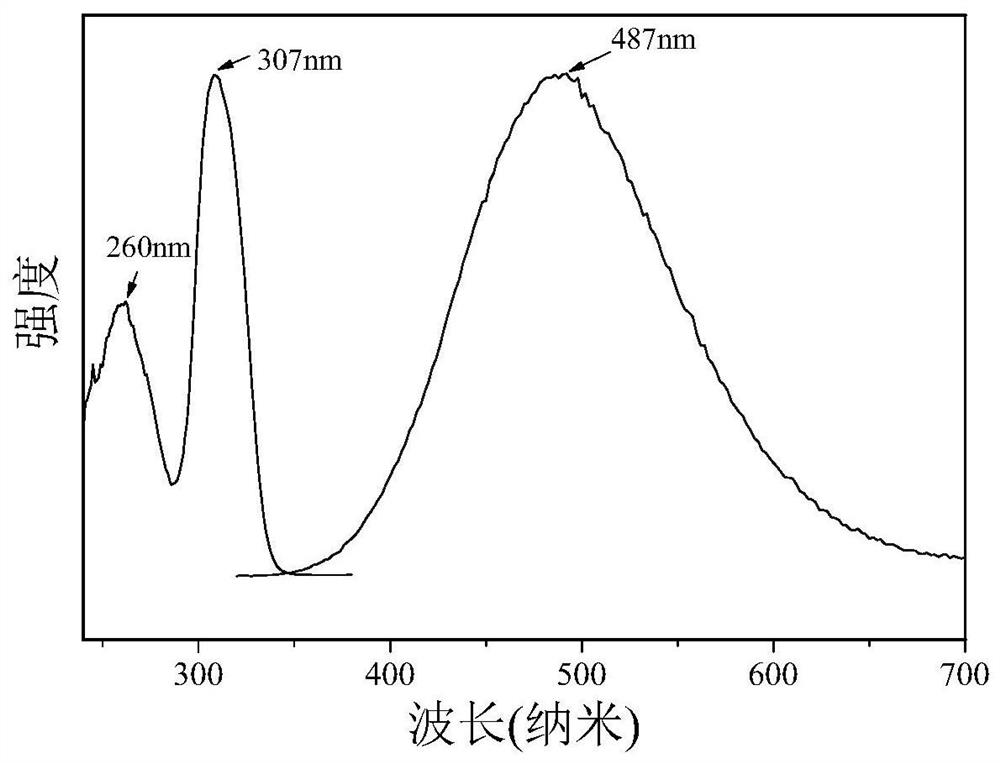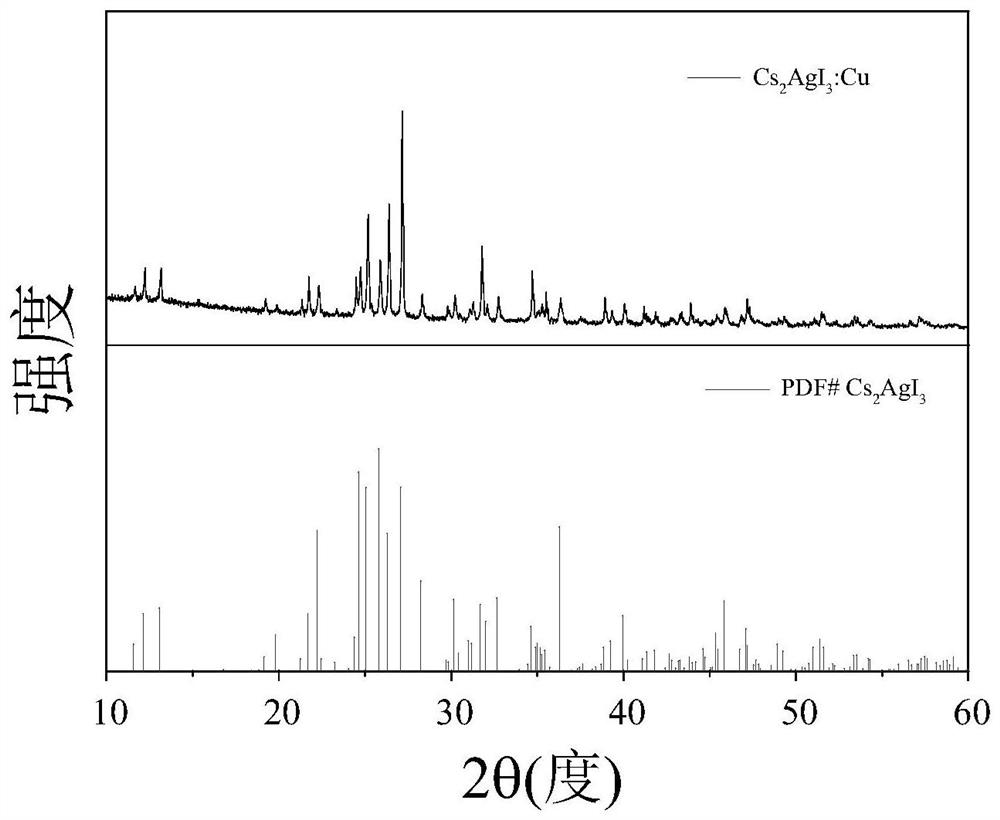A kind of high fluorescence efficiency inorganic non-lead perovskite material and preparation method
An inorganic non-perovskite technology, applied in the direction of luminescent materials, chemical instruments and methods, can solve the problems of lack of fluorescent properties, unfavorable industrial production, complicated operation, etc., and achieve the effect of improving fluorescence efficiency
- Summary
- Abstract
- Description
- Claims
- Application Information
AI Technical Summary
Problems solved by technology
Method used
Image
Examples
Embodiment 1
[0023] Weigh 2mmol cesium iodide and 1mmol silver iodide in the glove box, pour them into a 25mL agate jar containing 25 agate balls with a diameter of 6mm, seal the agate jar with a sealing film, take it out of the glove box, set The AC frequency of the ball mill is 35Hz, and the corresponding rotational speed is 1050rad / min at this time. After mechanical grinding for 10 hours, the yellow-green mixture powder changes from fluffy to dense with the prolongation of the grinding time, and finally turns into a fluffy light yellow powder. Stop grinding. When irradiated with an ultraviolet lamp with an excitation wavelength of 302nm, the product has no fluorescence. Put the obtained product into a hydrothermal reaction kettle, add 0.2mol cuprous iodide, 30 microliters of hypophosphorous acid, and 2 milliliters of hydroiodic acid, maintain at 180°C for 5 hours, and cool down to room temperature through a 24h program. After annealing at room temperature, after cooling at -15 °C for 1....
Embodiment 2
[0026] In Example 1, due to Cu + Instability, it is very prone to disproportionation reaction to generate Cu 2+ and Cu, therefore hypophosphorous acid must be added, now the amount of hypophosphorous acid is changed from 30uL in Example 1 to 10uL, 20uL, 50uL respectively, other conditions and steps are unchanged, the fluorescence efficiency of each product is measured to be 59.4%, 62.8% respectively. %, 63.7%, so the optimal dosage of hypophosphorous acid is 30uL.
Embodiment 3
[0028] Change the hydroiodic acid consumption in embodiment 1 into 1mL, 1.5mL, 3mL respectively by 2mL, other conditions and steps are constant, record the fluorescence efficiency of each product to be respectively 50.4%, 54.6%, 47.1%, therefore hydroiodide The optimal acid volume is 2mL.
PUM
| Property | Measurement | Unit |
|---|---|---|
| fluorescence quantum yield | aaaaa | aaaaa |
| fluorescence quantum yield | aaaaa | aaaaa |
Abstract
Description
Claims
Application Information
 Login to View More
Login to View More - Generate Ideas
- Intellectual Property
- Life Sciences
- Materials
- Tech Scout
- Unparalleled Data Quality
- Higher Quality Content
- 60% Fewer Hallucinations
Browse by: Latest US Patents, China's latest patents, Technical Efficacy Thesaurus, Application Domain, Technology Topic, Popular Technical Reports.
© 2025 PatSnap. All rights reserved.Legal|Privacy policy|Modern Slavery Act Transparency Statement|Sitemap|About US| Contact US: help@patsnap.com



